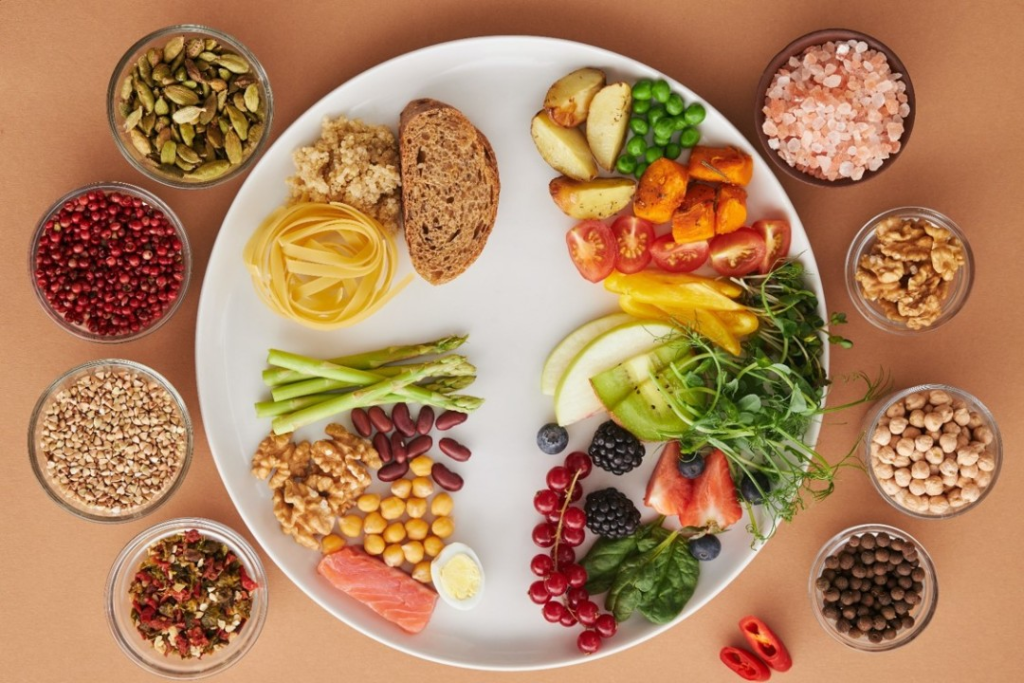Maintaining a healthy diet is essential for overall well-being, and incorporating nourishing foods into your meals can have a significant impact on your health. Here’s a comprehensive list of 100+ nourishing foods that you can include in your diet:
Fruits:
- Apples
- Bananas
- Oranges
- Berries (strawberries, blueberries, raspberries, etc.)
- Grapes
- Pineapple
- Mangoes
- Kiwi
- Watermelon
- Papaya

Vegetables:
- Broccoli
- Spinach
- Kale
- Carrots
- Bell peppers
- Tomatoes
- Cucumbers
- Sweet potatoes
- Brussels sprouts
- Cauliflower
Whole Grains:
- Quinoa
- Brown rice
- Oats
- Barley
- Buckwheat
- Whole wheat bread
- Whole wheat pasta
- Bulgur

Legumes:
- Chickpeas
- Lentils
- Black beans
- Kidney beans
- Soybeans
- Peanuts
- Edamame
- Split peas
- Pinto beans
Nuts and Seeds:
- Almonds
- Walnuts
- Cashews
- Chia seeds
- Flaxseeds
- Pumpkin seeds
- Sunflower seeds
- Pistachios
- Sesame seeds
- Hemp seeds
Lean Proteins:
- Chicken breast
- Turkey breast
- Salmon
- Tuna
- Eggs
- Greek yogurt
- Cottage cheese
- Tempeh
- Tofu
Dairy and Alternatives:
- Low-fat milk
- Greek yogurt
- Cottage cheese
- Cheese (in moderation)
- Almond milk
- Soy milk
- Coconut milk (unsweetened)
Healthy Fats:
- Avocado
- Olive oil
- Coconut oil
- Flaxseed oil
- Almond butter
- Peanut butter
- Chia seeds
- Hemp seeds
Herbs and Spices:
- Basil
- Oregano
- Cinnamon
- Turmeric
- Ginger
- Garlic
- Rosemary
- Thyme
- Cumin
- Parsley
Other Nourishing Foods:
Dark chocolate (70% cocoa or higher)
Green tea
Herbal teas
Kombucha
Nutritional yeast
Seaweed
Fermented foods (sauerkraut, kimchi)
Remember, this list is not exhaustive, but it provides a wide variety of nourishing foods to incorporate into your diet. It’s important to focus on whole, unprocessed foods and maintain a balanced approach by including a variety of nutrients from different food groups. Additionally, consult with a healthcare professional or registered dietitian for personalized dietary recommendations based on your specific needs and health goals.


